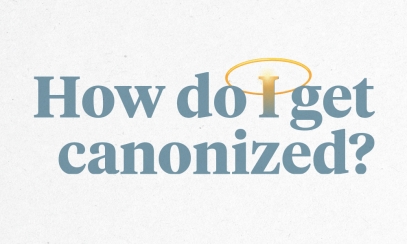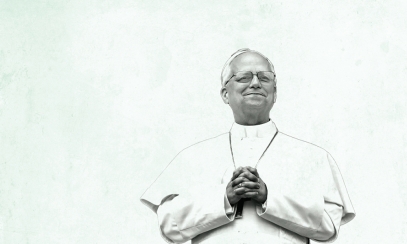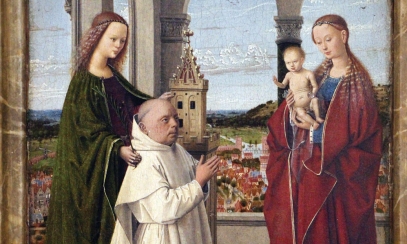
Why does the Church not admit divorced and remarried Catholics to the Eucharist?
Getting your Trinity Audio player ready...Divorce and civil remarriage present significant pastoral challenges within the Catholic Church. In his first letter to the Corinthians, St. Paul states, “Whoever … eats the bread or drinks the cup of the Lord in an unworthy manner … eats and drinks judgment upon himself.” (1 Cor 11:27-29) These warnings and prayers highlight the profound reverence required of anyone who approaches the Eucharist.
Divorce and civil remarriage present significant pastoral challenges within the Catholic Church. In his first letter to the Corinthians, St. Paul states, “Whoever … eats the bread or drinks the cup of the Lord in an unworthy manner … eats and drinks judgment upon himself.” (1 Cor 11:27-29) These warnings and prayers highlight the profound reverence required of anyone who approaches the Eucharist.
Therefore, one’s eagerness to receive may never exceed proper reverence. At the same time, Pope Francis’ apostolic exhortation Amoris Laetitia reminds us that the Church must avoid presenting marriage and family life as an abstract ideal disconnected from the often-messy situations faced by real families. While upholding the truth of the indissolubility of marriage, the Holy Father urges a compassionate, case-by-case pastoral accompaniment that respects the dignity and conscience of the faithful, but in a manner that is consistent with the truth. A conscience inconsistent with the truth is called an unjustified conscience, and requires formation.
The Church teaches that anyone conscious of grave sin must go to confession before receiving Holy Communion. (cf. c. 916; CCC 1385) Divorce itself does not automatically bar a person from Holy Communion — unless there is unconfessed grave sin directly tied to the divorce. (CCC 2386) When a divorced person remarries without a decree of nullity, its dissolution, or lack of canonical form, the Church presumes the original marriage bond remains intact. (CCC 1650) A new civil union is thus considered “irregular,” and the Church is unable to allow them to receive Communion. (CCC 2390)
Nevertheless, the Church exercises maternal care for those in difficult marital situations. Pastors are called to walk patiently with them. The following, outlined by Pope St. John Paul II in Familiaris Consortio (84) is to be followed under the direction of one’s pastor:
- First, seek a tribunal’s guidance on whether the original marriage might be null or dissolvable, or, if you or the other party were Catholic at the time of the marriage contract, whether it lacked canonical form.
- Second, if the first marriage’s validity is not overturned, a pastor can offer spiritual direction, explaining the Church’s teaching with compassion.
- Third, couples who are divorced and remarried may remain together, for grave reasons, but must refrain from marital relations (“live as brother and sister”).
- Fourth, in confession, repent for violating the marriage covenant and commit to continence. Repentance and continence, open the gate, so to speak, to the Eucharist.
- Fifth, return to the Eucharist. A divorced and remarried Catholic committed to the brother-sister clause may again approach Holy Communion.
By combining reverence for the sacrament with sensitive accompaniment, divorced and remarried Catholics can find hope, healing, and — ultimately — a path to reception of the Body of Christ.
Father Mark Rutherford is a priest of the Diocese of Lansing and Judicial Vicar of the Archdiocese for the Military Services, USA. He is looking forward to addressing your questions related to canon law, our Catholic faith, and how we can live it out in our everyday lives. Please send your questions to faithquestion@dioceseoflansing.org.



